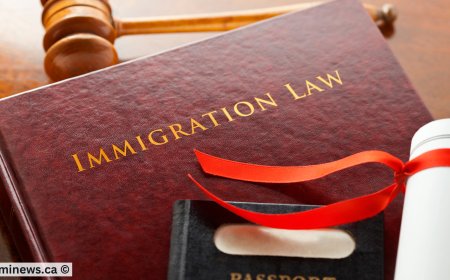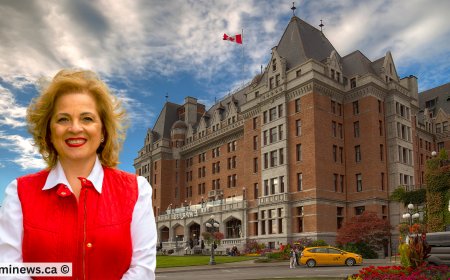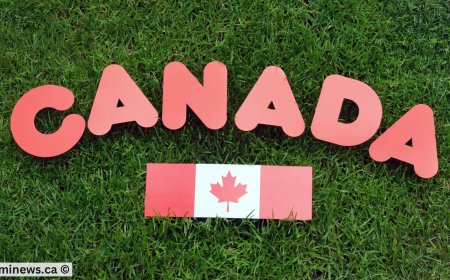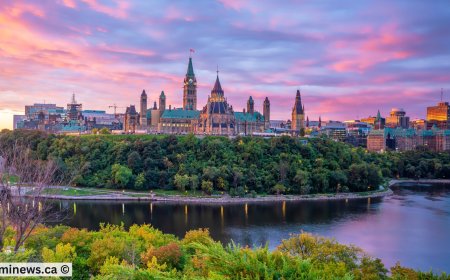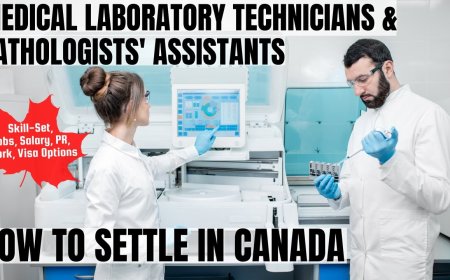Respiratory therapists, clinical perfusionists and cardiopulmonary technologists Canada Immigration Pathways: Understanding Salaries, Work Roles, and Best Provinces
Welcome to the pathway to Canada immigration for skilled professionals and trade workers. This guide is specifically tailored for Respiratory therapists, clinical perfusionists and cardiopulmonary technologists looking to work and settle in Canada, offering a deep dive into the essential aspects of immigration and employment in this field.
Introduction
In this article, we will delve into the career and immigration prospects for Respiratory therapists, clinical perfusionists, and cardiopulmonary technologists in Canada. These healthcare professionals, categorized under the National Occupation Classification code NOC 3214, play a vital role in diagnosing and treating patients with respiratory and cardiovascular issues. Throughout this article, we will explore the profile description, main job duties, education and license requirements, skills needed, median age and retirements, salary details, and potential visa options for individuals in these fields looking to pursue their careers in Canada.
What is the Profile Description of a Respiratory therapists, clinical perfusionists and cardiopulmonary technologists as per the Canadian National Occupation Classification (NOC) Standards?
Respiratory therapists, clinical perfusionists, and cardiopulmonary technologists are healthcare professionals who play a crucial role in the diagnosis, treatment, and care of patients with respiratory and cardiopulmonary disorders. Respiratory therapists assist physicians in delivering respiratory therapies and treatments to patients, while clinical perfusionists provide technical support during cardiac surgeries and for patients in need of cardio-respiratory support. Cardiopulmonary technologists assist physicians in conducting diagnostic tests and treatments for cardiovascular and pulmonary issues. These professionals may work in hospitals, extended care facilities, public health centers, respiratory home care companies, or other healthcare settings. Additionally, some respiratory therapists, clinical perfusionists, and cardiopulmonary technologists may hold supervisory roles or serve as instructors in their field.
What are the Main Job Duties of a Respiratory therapists, clinical perfusionists and cardiopulmonary technologists in Canada?
- Perform diagnostic tests and assessments on patients to evaluate respiratory, cardiac and pulmonary functions
- Operate and monitor a variety of diagnostic and therapeutic equipment to administer treatments such as oxygen, medications and extracorporeal circulation during surgeries
- Assist physicians with interventions such as intubations, cardiac catheterization and bronchoscopies
- Monitor patients' vital signs and physiological functions during procedures and surgeries, providing necessary support and care
- Supervise and train students, as well as collaborate with healthcare professionals in research and educational programs related to respiratory, cardiac and pulmonary disorders
What are the Education, Certifications, and Licensing Requirements to Work as Respiratory therapists, clinical perfusionists and cardiopulmonary technologists in Canada?
Respiratory therapists must complete a three-year college, hospital, or university degree program in respiratory therapy, which includes clinical training. In Quebec, Ontario, Manitoba, and Alberta, licensing is mandatory for respiratory therapists. Clinical perfusionists need to finish a respiratory therapy or registered nursing program and have at least one year of work experience as a respiratory therapist or registered nurse. They must also complete a college or university program in clinical perfusion, along with clinical training. Certification through the Canadian Society of Clinical Perfusion is also necessary. For cardiopulmonary technologists, a two-year college diploma in an allied health discipline (such as respiratory therapy or nursing), or a university degree in a related science is required. They must also complete a college post-diploma program in cardiovascular technology and receive additional training in pulmonary technology through courses or supervised on-the-job clinical training. Registration with the Canadian Association of Cardio-pulmonary Technologists (CACPT) may also be needed.
What Essential Skills are Required for Respiratory therapists, clinical perfusionists and cardiopulmonary technologists to succeed in Canada?
In order to be successful in the professions of respiratory therapists, clinical perfusionists, and cardiopulmonary technologists, individuals need to possess a variety of essential skills. These include the ability to assemble, maintain, and operate heart assist devices during cardiac surgery, administer substances through heart-lung machines, monitor vital signs during cardiopulmonary surgery, perform diagnostic tests, operate and monitor respiratory equipment for treatments, perform artificial respiration and external cardiac massage, participate in research related to cardiac and pulmonary disorders, assist with the transport of high-risk patients, participate in home care programs for chronic respiratory patients and provide education to patients and families, assess patients and perform interventions such as airway maintenance, line insertions, and intubations, assist with the preparation of cardiac catheterization rooms, prepare specialized catheters, and assist cardiologists during procedures, determine patients' blood characteristics, monitor patients and communicate any changes in condition to physicians, prepare medications and administer treatments under supervision, assist with diagnostic tests and stress tests, provide care and information to patients during procedures, and perform analysis, programming, and monitoring of implanted devices like pacemakers and defibrillators during surgeries. These skills are essential for providing high-quality care and ensuring the well-being of patients in clinical settings.
What is the Median Age and Retirement Age for Respiratory therapists, clinical perfusionists and cardiopulmonary technologists in Canada?
The skilled professionals working as Respiratory therapists, clinical perfusionists, and cardiopulmonary technologists have a median age of 40 years and typically retire at the age of 62. This indicates that individuals in this field tend to have a relatively long and stable career trajectory, with many choosing to work for over two decades before retiring. This may be attributed to the specialized training and expertise required for these roles, as well as the opportunities for professional growth and development within the healthcare industry. Overall, these statistics suggest that individuals working in these professions can expect a fulfilling and long-lasting career.
How many job openings exist for Other Respiratory therapists, clinical perfusionists and cardiopulmonary technologists in Canada, and what's their provincial distribution?
Respiratory therapists, clinical perfusionists, and cardiopulmonary technologists are in demand across Canada, with a total of 53 job openings available. The province with the highest number of job openings is Québec, with 38 opportunities for professionals in this field. New Brunswick comes in second with 6 job openings, followed by Ontario, Saskatchewan, Alberta, British Columbia, and Prince Edward Island each having 3, 3, 1, 1, and 1 job openings respectively. Québec has the maximum number of job openings, showcasing a strong demand for these healthcare professionals in the province. On the other hand, Alberta, British Columbia, and Prince Edward Island have the minimum number of job openings, indicating lesser demand in these regions. Overall, there is a steady demand for respiratory therapists, clinical perfusionists, and cardiopulmonary technologists across various provinces in Canada.
What is the hourly wage or salary of Respiratory therapists, clinical perfusionists and cardiopulmonary technologists in different Provinces of Canada?
The wage analysis for Respiratory therapists, clinical perfusionists, and cardiopulmonary technologists in Canada shows variation by province. In British Columbia, the wages range from $23.10 (low) to $35.44 (median) to $51.08 (high). Alberta offers higher wages with a low of $31.25, median of $45.75, and high of $50.64. In Saskatchewan, the wage range is from $31.84 to $39.00 to $40.00. Manitoba provides a high wage of $53.00, median of $38.38, and low of $23.00. Ontario’s wages range from $25.00 to $40.00 to $45.00. Quebec offers a low of $23.13, median of $32.40, and high of $38.00. New Brunswick’s wages range from $25.96 to $31.80 to $33.33. Lastly, Nova Scotia provides wages from $25.00 to $31.00 to $37.00. Overall, the wage analysis shows that Alberta and Manitoba offer higher wages compared to other provinces for these professions.
What are the various visa options available for Respiratory therapists, clinical perfusionists and cardiopulmonary technologists migrating to Canada?
Respiratory therapists, clinical perfusionists and cardiopulmonary technologists are currently in high demand in Canada and are eligible for Category based Express Entry Invitation draws for Canadian PR under Healthcare Occupations Category. Express Entry is a points-based system that manages applications for permanent residence for skilled workers. In addition, Provincial Nominee Programs and Employer Sponsored Work Visas are options for individuals in these professions to directly apply for immigration to Canada. Other visa options may also be available for these healthcare professionals. To learn more about the visa options and discuss your immigration plan in detail, book an appointment with our professionals today.
Have Questions or Need Assistance?
If you have any queries or require assistance with your immigration plans, we're here to help. Our experienced immigration consultants are ready to provide personalized guidance tailored to your specific needs.
Don't hesitate to reach out and schedule an appointment today. Whether you're seeking clarification on immigration processes, exploring visa options, or need support with documentation, we're dedicated to assisting you every step of the way.
Book an appointment with our team to discuss your immigration goals and receive expert guidance for your journey to Canada.
What's Your Reaction?
 Like
0
Like
0
 Dislike
0
Dislike
0
 Love
0
Love
0
 Funny
0
Funny
0
 Angry
0
Angry
0
 Sad
0
Sad
0
 Wow
0
Wow
0
